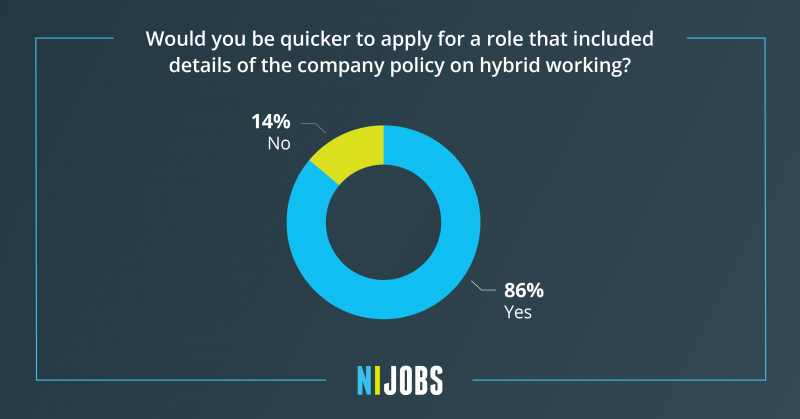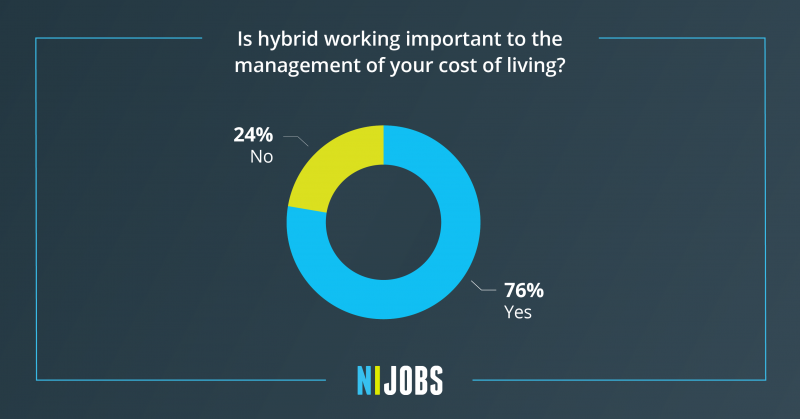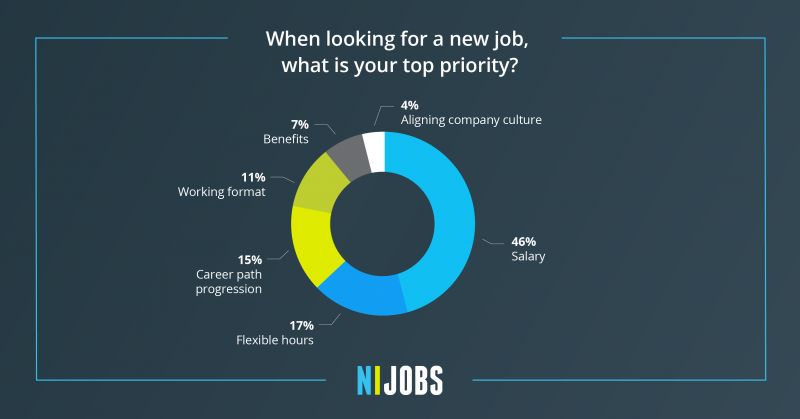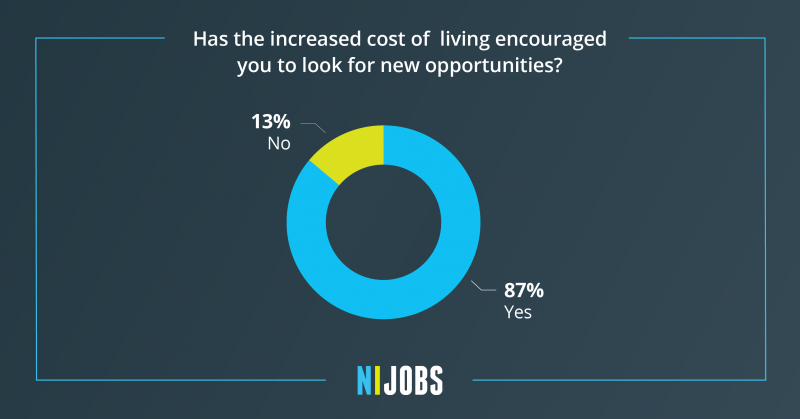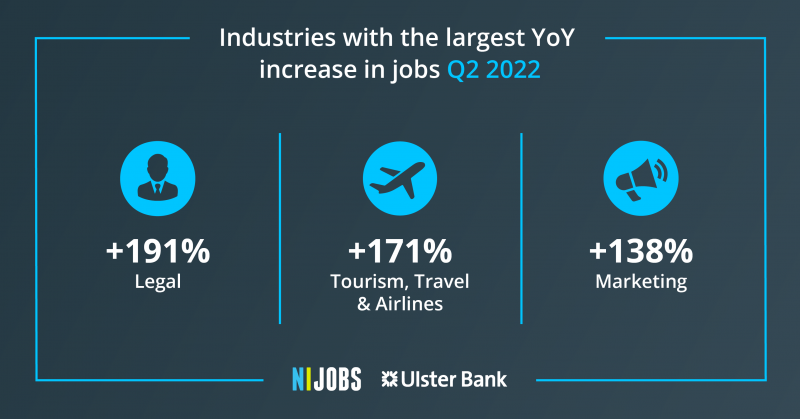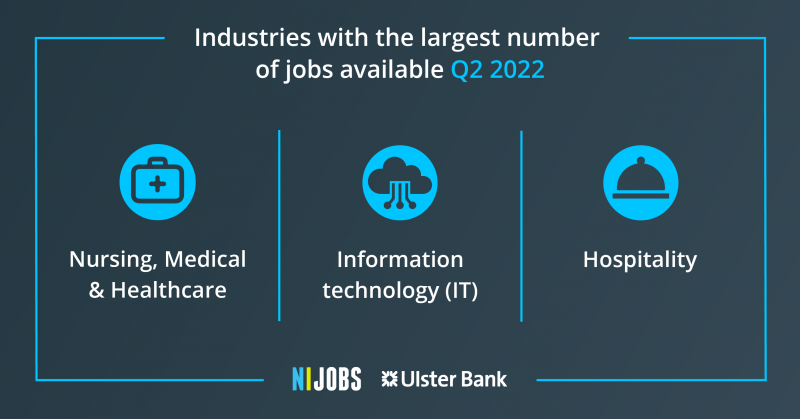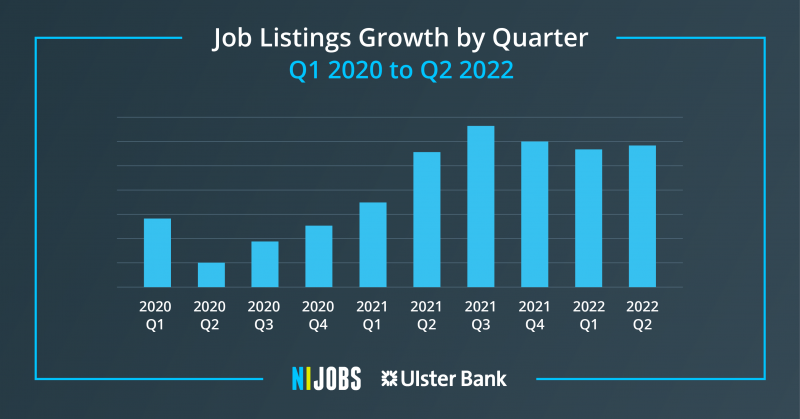Figures from the latest ‘NIJobs Job Report with Ulster Bank’ indicate a stabilisation in the local job market, with the demand for skills and roles remaining at an all-time high across some sectors.
The report’s insights into hiring market trends are further amplified by a Jobseeker Sentiment Survey, which reveals that concerns over the cost of living are prompting many workers to consider a job move in the coming months.
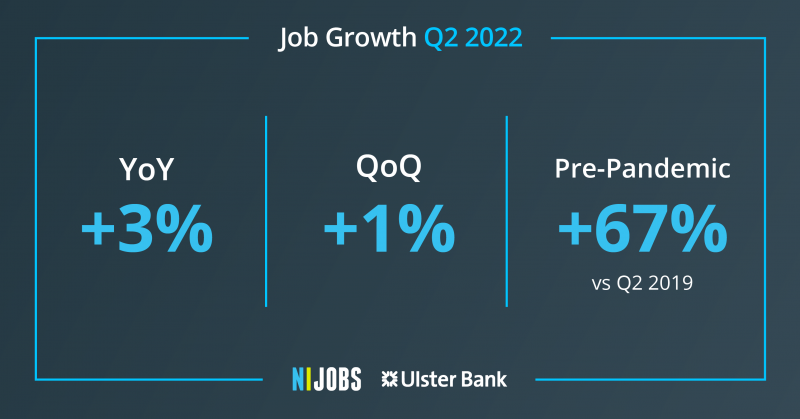
Job listing rose by almost 1% in the latest quarter (Q2 2022). While the number was 14% below last year’s record high, it still marked the best ever Q2 for vacancies. Job listings in the latest quarter were 67% above the corresponding pre-pandemic quarter (Q2 2019) and over five times the lockdown low of Q2 2020.
The top five employment categories account for 42% of all vacancies on the hiring platform. Four of these – IT, Hospitality, Accountancy & Finance, and Sales – continued to record robust levels of hiring significantly above pre-Covid levels. The Hospitality sector saw a 20% quarter-on-quarter increase in job openings in Q2 2022. IT, the top employment category before the pandemic began, has experienced its best five quarters to date. IT jobs still account for 1 in 11 of all listings.
Cost Of Living Concerns
Sam McIlveen, General Manager at NIJobs.com, says, “Our latest Job Report shows that while the recruitment surge has eased back, the number of job openings remains consistently high. Many employment categories, such as IT, continue to lead the way. The investment of global players reflects the local talent we have available in Northern Ireland. Companies are offering a wide selection of roles, with opportunities at every level, so it is undoubtedly an employee’s market.
“With a large number of roles on offer, we surveyed over 1,000 jobseekers to examine trends around motivation and sentiment in the local market. It is no surprise that increases in inflation and the cost of living means that many are evaluating the steps they can take to ease financial pressures.
Almost 90% of respondents said that the cost of living is making them consider a job move, with three-quarters planning a job move within the next six months. At the moment, we are experiencing vigorous job seeker activity with job applications above where they were this time last year.
“It is positive news for the local market as the number of job openings won’t slow anytime soon; however, employers must give careful consideration to the current climate when competing for talent.
“The cost of living crisis is having a negative impact on employees’ wellbeing, and rising business costs for employers may mean that above-inflation pay rises are not always an option. There are other benefits that can attract and retain your workforce if you are trying to tackle the cost of living.
“Our survey indicated that transport is often the biggest expense so companies may wish to subsidise this in a small way. Offering financial planning support, contributions to pensions and life/health insurance and making flexible working a key part of the role could help offset additional costs for employees.”
High Demand For Talent
The quarterly data and job listings from NIJobs.com are viewed as a leading indicator of labour market performance, giving insight into recruitment trends, the economic environment and the types of roles job seekers are searching for online.
Richard Ramsey, Ulster Bank’s Chief Economist, says analysis shows that Northern Ireland’s labour market continues to churn out positive headlines.
“Almost 60% of NIJobs.com employment categories (18 out of 31) actually saw more positions advertised in the latest quarter than in Q1 2022. While eight of the thirty-one employment categories posted their highest number of job openings to date in Q2 2022. These included:
• Construction, Architecture & Property
• Graduate & Apprentice
• HR
• Legal
• Marketing
• Motoring
• Tourism, Travel and Airlines
• Production, Manufacturing, and Materials
“The most significant employer of the aforementioned is the Production, Manufacturing, and Materials category, accounting for almost 1 in 20 of all vacancies – the eighth highest employment category. Northern Ireland’s manufacturing sector has outperformed its counterparts in Great Britain, with the NI Protocol cited as one important tailwind behind the robust output and employment performance. For example, Northern Ireland’s manufacturing employment stood at a 19-year high in March 2022. This continues to be reflected in the record number of job openings in Q2 2022.
Balance Of Power
Ramsey believes the ongoing skills shortages are putting job seekers in the driving seat.
“Given that CPI inflation is running at a 40-year high, wage rates rather than unemployment rates are receiving more focus than normal. Northern Ireland’s median pay for employees increased by 6.6% y/y in May, a significant increase but well below the current CPI rate of 9% y/y.
“The gap between inflation and average earnings is expected to widen, reflecting the cost-of-living squeeze, and this doesn’t factor in the reduction in after-tax earnings following the recent increase in National Insurance Contributions.
“However, the widespread skills shortages shifts the balance of power towards employees rather than employers. Against this backdrop, the war on talent means many firms are engaged in an arms race of pay increases and benefits improvements to attract and retain staff.
Flexible working continues to be one incentive within the wider arsenal offered by leading employers. Despite talk of a looming recession and a cost-of-living crisis, as far as job openings are concerned – employees have never had it so good.”
NIJobs.com has been helping people climb the career ladder since 2000. Our team is brimming with tips, guidance, ideas and inspiration, seeking to bring you closer to your dream job.

